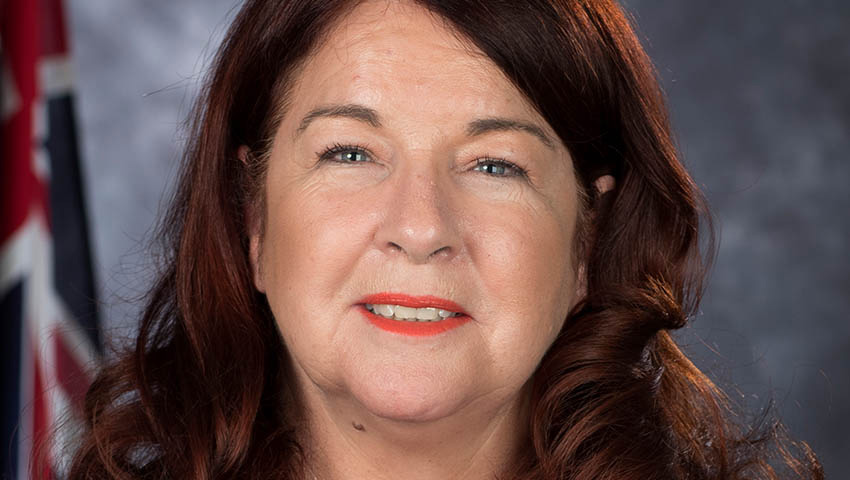Minister for Defence Industry Melissa Price explains why the sovereign guided missiles program is a critical step towards building a resilient industrial base.
Right here and right now, Australia is at the centre of an ever-changing and, at times, challenging strategic defence environment.
As a national government, our priority is to ensure we are prepared for whatever the world might throw at us.
That preparation includes making sure the Australian Defence Force is trained, equipped and ready to mobilise.
COVID-19 has reinforced the importance of domestic self-reliance as supply chains are disrupted around the world.
Guided weapons are complex and technologically advanced, and they are critical for the Australian Defence Force.
Our plan to bring forward and develop an industry that can manufacture components and guided weapons here at home will ensure the ADF has a secure pipeline of critical munitions as needed.
But our local industries are not the only beneficiaries.
Critically, this will also create demand for hi-tech, local manufacturing jobs, and opportunities for Australian businesses across a range of sectors, including our defence industry.
Earlier this year, I joined the Prime Minister Scott Morrison and Ministers Dutton and Porter in announcing plans to fast-track creation of a $1 billion Sovereign Guided Weapons and Explosive Ordnance Enterprise (the Enterprise).
We know there is already enormous interest from Aussie defence companies who are keen to win a slice of the work to build missiles locally.
Australia currently relies on key overseas strategic partners, including the US, for access to a number of guided weapons.
International demand for such weapons is high and production lead times are lengthy, largely due to the complexity of these weapons and their supply chains.
By increasing Australia’s capacity and expertise, it not only ensures stocks are available for the ADF, it also provides opportunities to supply key components to our key international strategic partners.
Australia is working closely with our partners such as the US and others on the Enterprise to improve our understanding of how Australian local production of critical guided weapons components could potentially support wider programs in the shorter term.
Over the longer term, the Enterprise will improve Australia’s self-reliance by supporting the development of an industry capable of manufacturing guided weapons in Australia.
The Enterprise, and the production of guided weapons and components it supports, will be a national endeavour, offering economy-wide benefits.
It will also provide a range of opportunities for Australian small businesses that currently sit outside the Defence sector.
The development and sustainment of several key capability elements will be crucial to support sovereign guided weapons production.
In addition to manufacturing, these include; maintenance, test and evaluation, storage, research and development, training and education, and disposal.
Building these capability elements will require a commitment and sustained effort, supported by a close and trusted partnership between Defence, Australian academia, and industry.
Our plan is building on Australia’s highly-capable guided weapons industrial foundations, and developing new capabilities.
Our industrial base already has long‑standing and world-class pedigree in this sector.
For example, the ‘Nulka’ rocket-powered anti-ship missile decoy system is a cutting-edge Australian innovation, now manufactured by BAE Systems Australia in co-operation with the US.
The Australian-produced Nulka is used by the Royal Australian Navy, the US Navy and the Canadian Navy, providing significant export revenue to Australia.
Australia also has existing infrastructure in place to help fast-track the Enterprise.
WA, for example, will play a key role in supporting the Enterprise through the torpedo maintenance facility at Garden Island.
Regional Australia will make an important contribution through the government owned, contractor managed Thales Australia facilities at Mulwala in NSW, and Benalla in Victoria.
A range of munitions used by the Australian Defence Force are already produced at the Benalla Factory including small arms, artillery, and grenades.
These Australian-made defence capabilities are of particular interest to our key partners. In 2020, over $30 million in munitions export orders were approved, including to the US, New Zealand, Canada, Asia and Europe. We want that figure to grow.
Every day the Morrison government is working to bring more Australian businesses into the defence marketplace. Working to employ more Australians, to nurture Australian talent and to bolster Australia’s industrial base.
I am excited to be working with Australian industry, academia, and small and medium businesses, to grow and develop this Enterprise and our sovereign guided weapons capability.
Because I have no doubt that it will strengthen Australia’s safety and security and deliver countless and significant opportunities for Australians to boost our economy.
Melissa Price is the Minister for Defence Industry and member for Durack in Western Australia.



